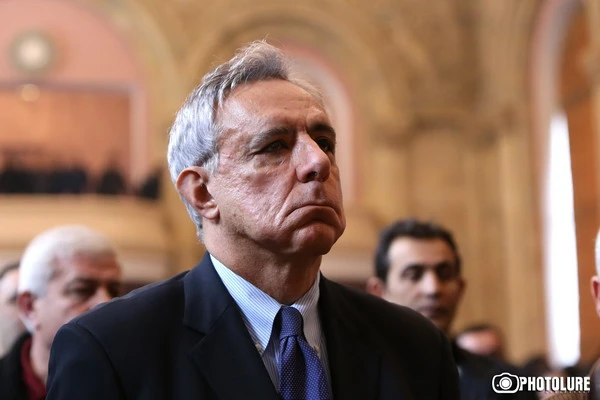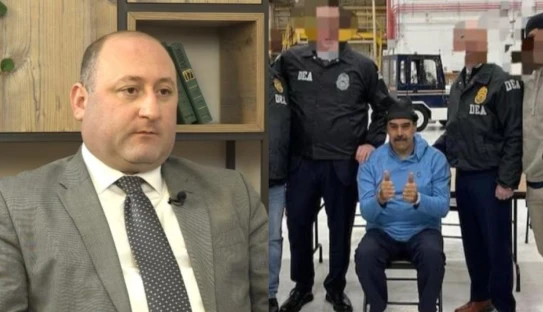Nikol Pashinyan has once again been deprived of his moral authority to lead Armenia. Vardan Oskanyan



It is hard to say whether this is the result of an agreement or just Maduro's luck. Suren Sargsyan
Pashinyan and 10 tyrants took a historic step, the goal of which is the disintegration and disintegration of the Armenian Church. Zurabyan
It is a "noble" state of truly taking care of others. Voskanyan
Maduro is paying not only for his activities, but also for bringing China into the region. Suren Sargsyan
Surenyan said how long the rainfall will continue in Yerevan
One should not light a candle, cross oneself with one hand, and knock on the holy door of the Lord's house with the other
Ambassador Quinn will return to Washington just one month before the end of his tenure. Suren Sargsyan
The most serious and dangerous consequence concerns the NSS as a state institution. Surens
Do you consider Nikoli to be the opposition or the parliamentary opposition? Eduard Sharmazanov
The renegade leader of Artsakh Diocese did not lead people in Artsakh, now he preaches immorality
Blackmail, bribery, promise of position and nothing can be exchanged for dignity. Father Zareh, Bishop Gevorg
If Kirantsi is so good, why has the number of students decreased? Oskan Sargsyan
In the framework of the multi-layered hostile policy towards Armenia, the "map", "place name" and other "details" are a direct indicator not of peace, but of the ongoing hybrid war. Vardan Voskanyan
Tonight, the maximum phase of the Leonid constellation will be seen in the sky. Levon Azizyan
"Every year on this day together, but today without you, dear Pope." It is Valodya Grigoryan's birthday. girl's touching post
Temperatures will be above normal in the coming days
The government does not stop at anything, and the Bishops are firm. Tigran Abrahamyan
The Iranologist analyzed the etymology of the meaning of Lake Sevan's Turkish name Gökçä, which appeared very late.
After Bagrat Srbazan's questions to the head of the investigative committee, such an interrogation was expected. lawyer
Which political forces and figures are to blame for the devastating defeat of Armenia in the 44-day war? political scientist